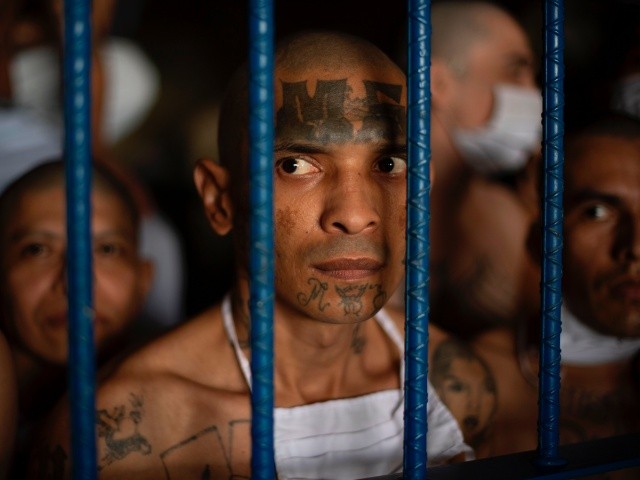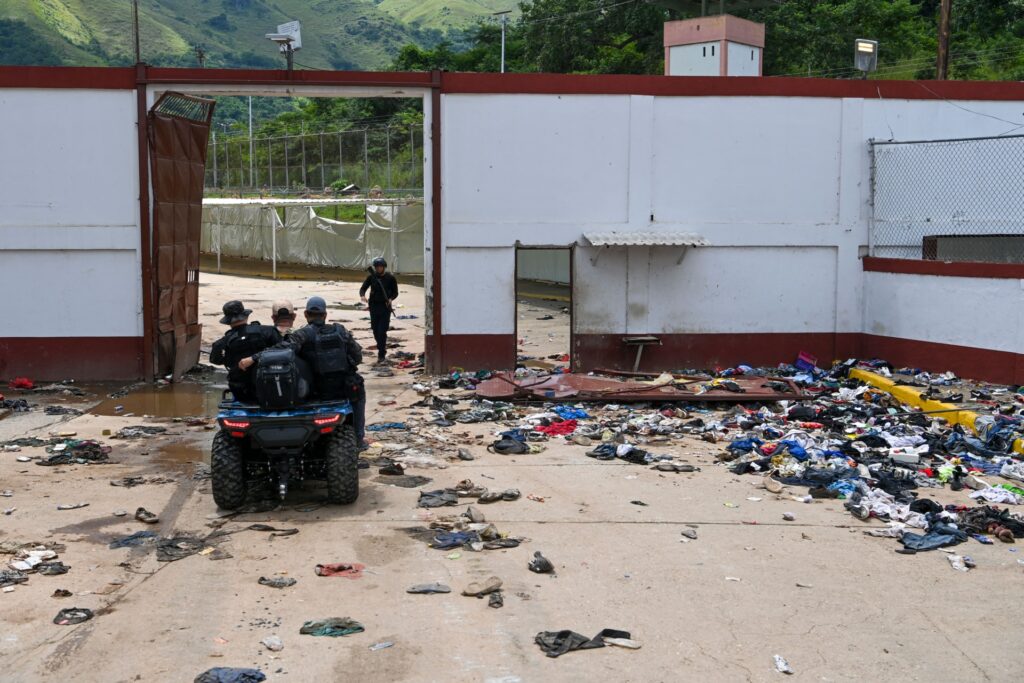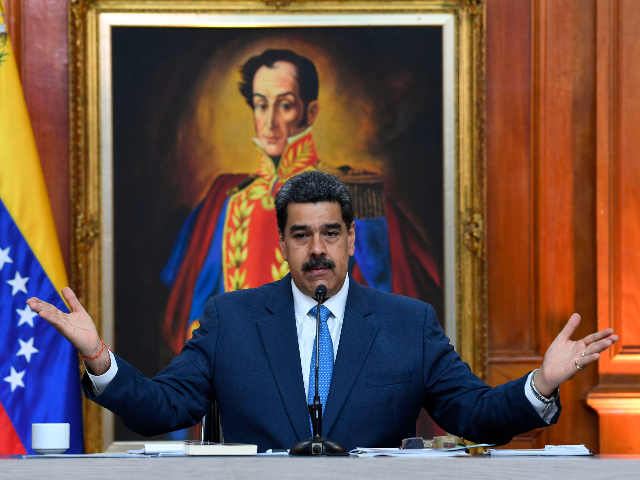Venezuela’s socialist regime allowed Héctor “the Child” Guerrero, the leader of Venezuela’s largest mega-gang, the Tren de Aragua (“Aragua Train”), to escape prison months before the organized crime syndicate established a criminal presence in New York City.
The Aragua Train, which began in 2012 as a local trade union gang in the eponymous state of Aragua, rapidly grew into a full-fledged transnational criminal organization with active cells in other regional countries and now the United States with tacit impunity provided by the regime of dictator Nicolás Maduro.
FBI officials suspect that the criminal organization, which has found its way to New York, has established an alliance with El Salvador’s Mara Salvatrucha (MS-13) gang to conduct violent criminal activities in New York.

Members of the MS-13 and 18 gangs inside their cells at the maximum security prison in Izalco, Sonsonate, El Salvador, on September 4, 2020. (YURI CORTEZ/AFP via Getty Images)
A report published by the New York Post on Monday states that, according to unnamed sources, Aragua Train members have moved into New York after crossing the southern border and claiming asylum in the United States.
The Aragua Train’s presence has led to a violent wave of cell phone robberies staged by individuals riding mopeds — a tactic often employed by gang members in Venezuela.
The phones are, according to the New York Post report, used to drain the victims’ bank accounts through fraudulent transactions in both the United States and South America before they are shipped to Colombia to be wiped, reprogrammed, and sold.
In addition to New York, U.S. police authorities have confirmed the presence of the gang’s members in other cities, such as Chicago and Miami.
Guerrero, the Venezuelan mega-gang’s founder, has an extensive criminal record, which includes allegations of extortion, kidnapping, drug trafficking, murder-for-hire, vehicle theft, migrant smuggling, sex trafficking, and human trafficking.
His whereabouts remain unknown as of late September 2023, when the Maduro regime raided the Tocorón prison, an inmate facility in Aragua that, under the control of Venezuela’s Bolivarian National Guard (GNB), had been transformed into a criminal operations base for the gang.

Members of the Bolivarian National Police patrol on a quad bike at the Tocorón prison in Tocorón, Aragua State, Venezuela, on September 23, 2023. (YURI CORTEZ/AFP via Getty Images)
Non-government organizations claimed at the time that the Maduro regime raided Tocorón only after Guerrero had negotiated handing over the facility to the socialist regime, as the gang leader had allegedly fled the prison before the operation took place.
Investigators suspect that Guerrero was able to escape Tocorón before the September raid through a series of tunnels that connected the prison with the nearby Lake Valencia, using a boat. Inmates reportedly used the tunnels regularly to come and go from the prison at their leisure.
At the time of the raid, Guerrero was “serving” a 17-year prison sentence beginning in 2018 on multiple convictions of homicides, drug trafficking, and other charges.
As the leader of the Aragua Train, Guerrero ran the now-shutdown Tocorón prison as its pran — a slang title given to the topmost leader of a Venezuelan prison. Guerrero, in his condition of Tocorón’s pran, ran the facility under a fiefdom-esque system known in Venezuela as pranato (“pranate”). The Venezuelan pranate system functions on its own governance, rules, and terminology.
One such rule calls for prison inmates to pay a pre-established recurring fee to the pran’s “cause” in return for their safety and, in some cases, added benefits, such as food or drugs. Failure to pay towards the “cause” results in life-threatening consequences for the offending inmate.
Guerrero, through funds obtained from the “cause” and profits from Aragua Train’s criminal activities, transformed Tocorón into a fortified enclave featuring amenities such as Guerrero’s own private home, pools, bars, clubs, a baseball stadium, and private banking offices. The Venezuelan National Guard provided external security to Guerrero and the Aragua Train while he ran the prison.
Pranate fiefdom systems, such as Guerrero’s, are found in every major Venezuelan inmate facility — and they all count on the “blessing” of the ruling socialist regime, tacit or otherwise.
Christian K. Caruzo is a Venezuelan writer and documents life under socialism. You can follow him on Twitter here.

COMMENTS
Please let us know if you're having issues with commenting.